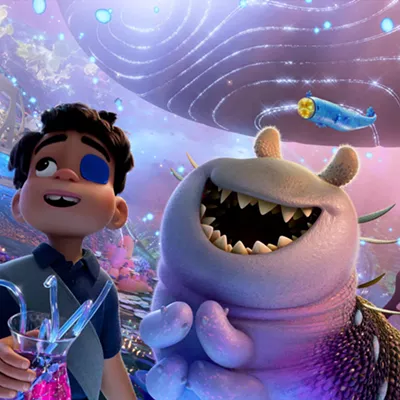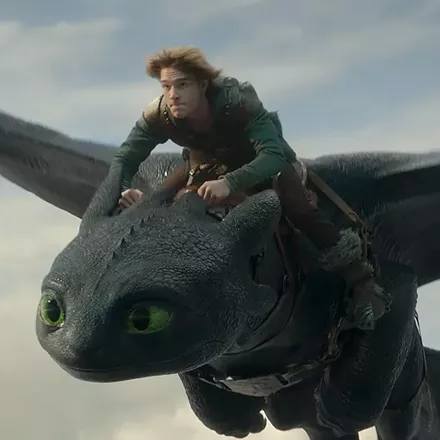What's your favorite movie?
I'm asked often, usually a few drinks into a discursive barroom conversation, and I've always had a tough time answering. But the older I get, the more confident I've become in my choice: Joel and Ethan Coen's Fargo, a 1996 black comedy about a string of increasingly bizarre crimes that leaves a trail of dead bodies scattered between Minnesota and North Dakota.
The film was released 25 years ago this week, and it hasn't aged a day. It was a critical smash upon its release, with both Siskel and Ebert naming it the best film of '96, and it eventually won two Oscars (for its screenplay and for Frances McDormand's lead performance), was preserved by the Library of Congress and inspired a beloved TV spinoff.
So why is it my favorite movie? It has all the qualities I look for in a film: rich characters, an unpredictable plot, a gorgeous visual style (courtesy of frequent Coen collaborator Roger Deakins), an audacious juggling of tones, and a lived-in specificity that makes its setting seem so real and right. It's funny and it's scary. It's brilliantly acted. It ends on a note of disarming warmth and wisdom. I never get tired of it, and I get something new out of it every time I watch it.
Just about everyone remembers isolated scenes and images from the film. The pregnant cop. The all-seeing Paul Bunyan statue. The "Minnesota nice" accents with their exaggerated vowels. The wood chipper. But Fargo is about so much more than its cultural shorthand, and it's arguably the most empathetic film the Coens have made, its shocking bursts of violence notwithstanding.
They began writing it shortly after their indifferently received screwball throwback The Hudsucker Proxy (1994), and after production on their stoned caper comedy The Big Lebowski was delayed. (According to Todd Melby's new book A Lot Can Happen in the Middle of Nowhere, which exhaustively details the making of Fargo, the Coens also wrote the first draft of 2000's O Brother, Where Art Thou? while they were revising this one.) Inspired by their upbringing in the Minneapolis suburbs, the Coens concocted a loopy, clockwork plot set in the sleepy small towns of their youth, where seemingly good people are capable of horrible things and the lily-white snow is stained with blood.
Despite the title, most of the movie is set in Minnesota, where car salesman Jerry Lundegaard (William H. Macy, who's never been better) is trying to claw his way out of debt. He hires two thugs — the weaselly, motor-mouthed Carl (Steve Buscemi) and the hulking, inarticulate Gaear (Peter Storemare) — to kidnap his wife (Kristen Rudrüd), knowing that his wealthy father-in-law (Harve Presnell) will cough up the ransom.
Of course, things go horribly wrong (as they must in stories like this), and innocent people wind up dead. Enter Marge Gunderson (McDormand), the police chief of Brainerd, Minnesota, who's seven months pregnant and who turns out to be unexpectedly tenacious in her search for the killers.
Fargo was the Coens' sixth feature, and it represented the apotheosis of a career that had already become synonymous with the blending of seemingly incongruous tones and styles. They had dabbled in traditionally dark genres — the noirish thriller Blood Simple, the psychological parable Barton Fink, the eccentric gangland drama Miller's Crossing — but imbued them all with queasy comedy, and even their zany farces (Raising Arizona, The Hudsucker Proxy) were populated by desperate and lonely people.
Fargo lands somewhere in between. It's gruesomely violent at times, but it also goes for big, broad laughs. Like their previous films, it's precise in its consideration of time and place, filled with minor characters who suggest a more expansive universe. There's the car buyer (Gary Houston) who's the first person we see Jerry lie to, and who nearly bursts a blood vessel while trying to remain polite. The young women (Larissa Kokernot and Melissa Peterman) who sleep with Carl and Gaear and relay details of their sexual prowess to Marge. The bartender (Bain Boehlke) who humorously recalls an encounter with Carl while shoveling snow. Steve Park as Mike Yanagita, a former classmate of Marge's who asks her to dinner under false pretenses.
Many of these side characters are played for laughs, and Melby's book delves into contemporaneous reports of Minnesotans being offended by their depiction in the film. But it's clear that the comedy comes from a place of shrewd observation and cockeyed affection: After all, you can't poke fun at a place unless you're intimately familiar with it.
Like so many crime plots, Fargo is a film about deception, but its innovation is in moving this kind of plot to a place known for downhome politesse. Jerry is lying to everyone. His hired goons are lying to each other. Mike Yanagita lies to Marge, selling her a sob story that turns out to be fake, and it's his duplicity that leads her back to Jerry. The Coens themselves are lying to the audience: The movie opens with text claiming it's based on a true story; it isn't.
The sole bastion of sincerity in the Coens' bitter world is Marge Gunderson, who isn't introduced until the 30-minute mark. We rarely see movies (especially thrillers) with heroes like her, and McDormand's performance is one of the most adroit pieces of acting I've ever seen. She's personable. She's earnest. She's as concerned about the gory details of the crimes as she is about the prices at the Radisson buffet. She and her husband, Norm (John Carroll Lynch), genuinely seem to love each other. And yet Marge is also a shrewd investigative mind — notice how her conjecture about the details of the crime turns out to be accurate — and we're forced to re-examine our own assumptions about her character as she efficiently cracks the case.
The Coens have been labeled as cynics and misanthropes, and have sometimes been criticized for erecting an emotional barrier between themselves and their characters. That may be true sometimes, but Fargo is almost a repudiation of cynicism. After all the death and all the deceit, the Coens leave us not with the criminals but with good ol' Marge and Norm: He's sold a painting to be featured on a postage stamp, she's about to have their baby, they're truly in love with each other, and it's a beautiful day. ♦
Fargo is available to rent on Amazon, Google Play and iTunes.

























